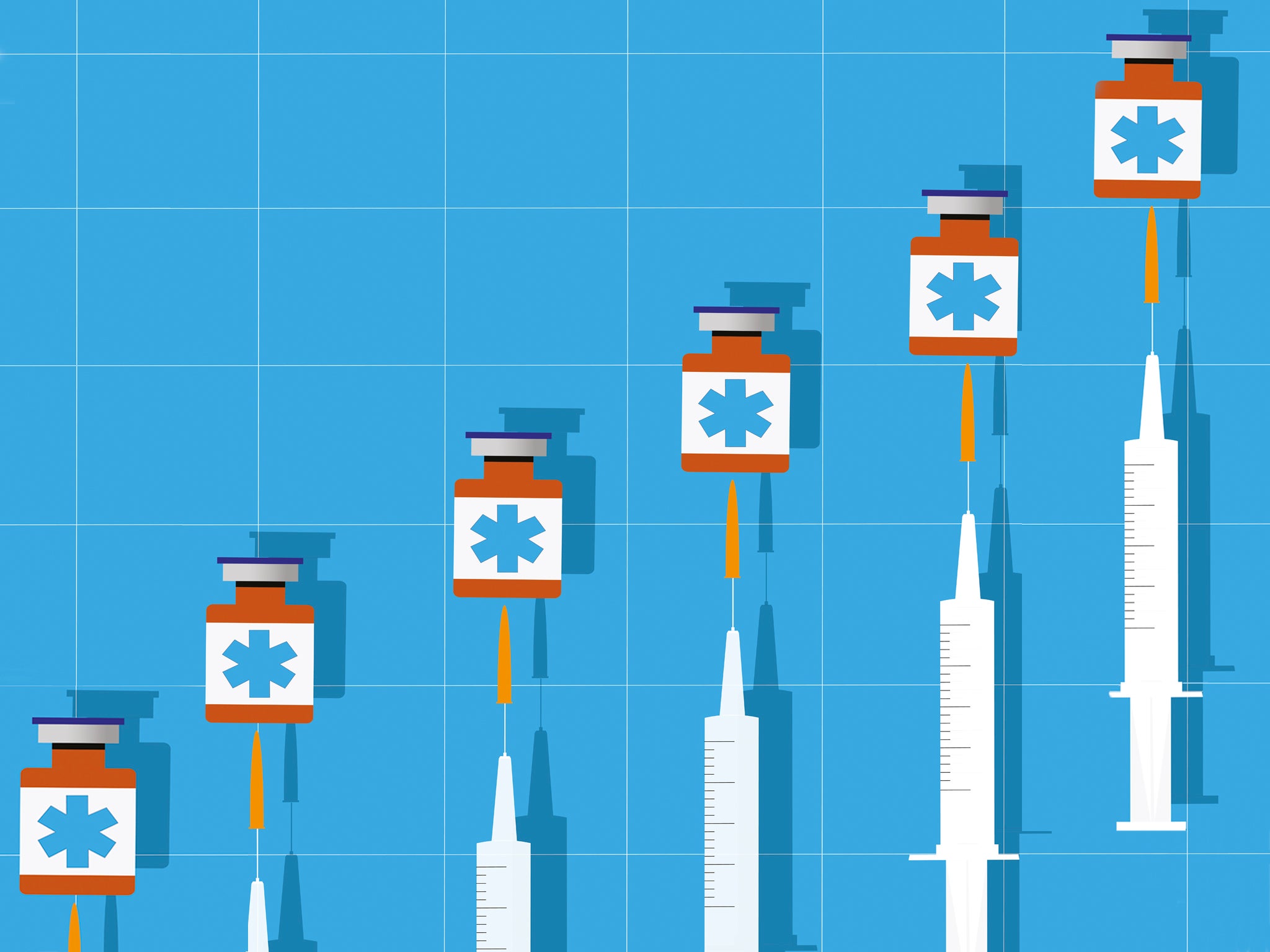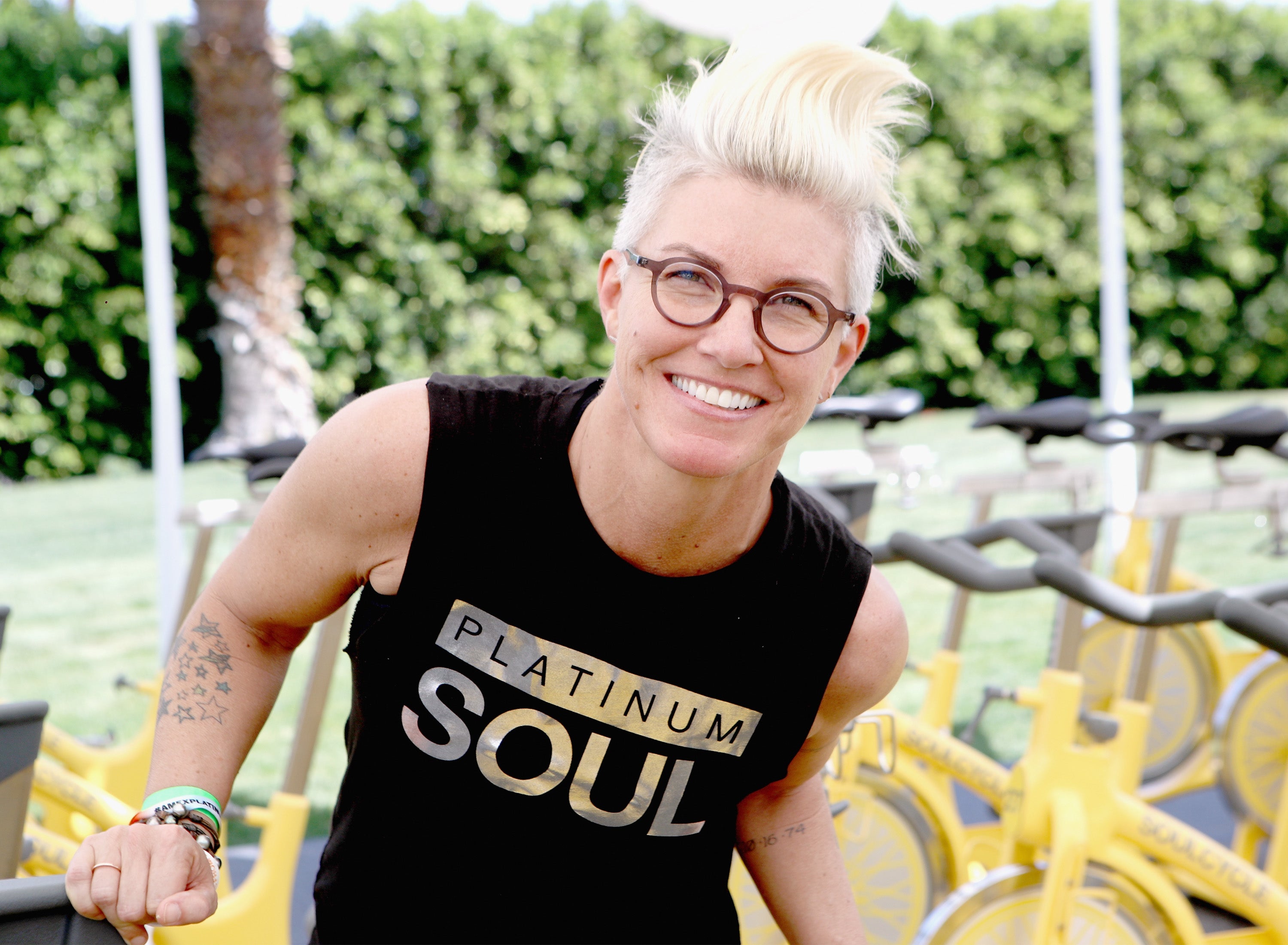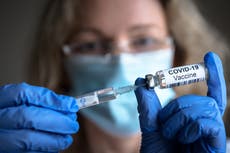Vaccine hunters and skipping line - can America’s Covid vaccination ‘cheats’ be stopped?
SoulCycle instructors and wealthy hospital donors have found loopholes to skip the line at a time when vaccine doses are in limited supply, writes Danielle Zoellner

A mass vaccination campaign is underway in the United States to get every American inoculated, at a time when new Covid-19 variants are spreading through communities and the country surpasses 450,000 deaths.
The demand for a Covid-19 vaccine currently exceeds the limited supply available, forcing the federal government and states to determine who should receive the necessary jab first. The Biden administration recommended for states to open vaccine eligibility to those 65 years and older, but ultimately left it up to local officials to set the parameters.
But now states are left with differing vaccine policies based on their local communities, and some Americans have found ways to “jump” the line in order to receive the coveted treatment over others who are prioritised higher.
In New York, vaccine eligibility was opened up to its Phase 1B, which allowed police officers, transit workers, grocery store workers, and school teachers to access an appointment. But Stacey Griffith, a New York City-based SoulCycle instructor who often teaches celebrity clientele, sparked backlash because she assumed her job title fulfilled the requirement of being a “teacher”.
After filling out the necessary paperwork, the 52-year-old was able to drive to a vaccination site in Staten Island to receive the Covid-19 vaccine. In an interview with The Daily Beast, she said accessing the vaccine did not involve “favours” or her paying money in order to jump the line ahead of other New Yorkers.
“I think it’s unethical, and I think it’s unfair,” Dr Georges Benjamin, the executive director of the American Public Health Association, told The Independent about the individual case.
If states were going to determine eligibility by profession, like with teachers, he recommended for them to “decide how you define who a teacher is” to avoid others skipping the line. Also, vaccinations could be brought to directly to the specific businesses or sites could require identification from employees to avoid future scammers.
But Dr Benjamin warned against putting too many barriers in place in an effort to stop individuals from jumping the line, as it could turn the public away from receiving a vaccine.
“You’re always going to have somebody who is going to get around it,” he said. “The simpler we make this, the easier we make it for people to get vaccinated in an environment where we want everyone to be vaccinated.”

On Monday, Ms Griffith apologised for receiving a Covid-19 vaccine ahead of others in an Instagram post. “I want to apologize from the bottom of my heart for my recent action in receiving the vaccine. I made a terrible error in judgment and for that I am truly sorry,” she wrote.
This has not been the only instance when specific communities have used their privilege to access a vaccine over others, emphasising the inequalities within the healthcare system that Covid-19 has further exacerbated. Globally, government and health officials have grappled with how to handle some of these vaccine "cheats".
One of the most prominent cases has come out of Canada, where wealthy couple Rod and Ekaterina Baker chartered a private plane to travel to the Yukon terriotry to access a Covid-19 vaccine. While there, they allegedly posed as motel workers in order to qualify for the jab. In Germany, calls have mounted to address line jumpers after several hospital executives and managers received the vaccine despite being ineligible at the time.
Hospital systems in the United States have also come under fire for offering vaccines to donors or high-ranking administrators over its frontline staff or the general public. Overlake Medical Center in Bellevue, Washington, apologised last week after it shared an email with its benefactors about 500 open vaccine appointments that were available “by invite” only, The Seattle Times first reported.
Similarly in New Jersey, Hunterdon Medical Center distributed vaccines to benefactors and relatives of hospital executives ahead of the state opening up vaccine eligibility to the general public. A spokesperson claimed the hospital system followed state guidelines, but the move infuriated residents.
“There’s a role for the professional society, the hospital associations, to make sure that they share with their members that doing those kinds of things erodes trust,” Dr Benjamin said. “It perpetuates the myth that somehow your donors are more important than your staff.”
Hospital systems and vaccination sites have also run into the issue of having leftover doses at the end of the day. Once a vaccine vial is opened, it lasts only about six hours before it must be trashed. Reports surfaced of sites across the country trashing several doses in the evening because there was no one available to vaccinate who fit eligibility requirements, which has encouraged so-called "vaccine hunters".
These hunters, in an effort to prevent waste, have stalked and waited outside vaccination sites on the off chance an extra dose would be available. But the practice has resulted in young, healthy Americans receiving a necessary vaccine ahead of others at a time when supplies are so limited.
Lois Privor-Dumm, a senior research associate with the Johns Hopkins Bloomberg School of Public Health and an expert in immunisation policy, told The Independent that sites could prevent some of these issues by encouraging eligibile residents to show up even if they don't have a vaccine appointment.
"But you do want to make sure [the vaccine dose] at least goes into somebody’s arm rather than being thrown away because you’re trying to meet certain eligibility criteria," Ms Privor-Dumm said.
"At a certain point, you have to make the program manageable," she added. "It’s not always going to be perfect, but you can’t let the perfect be the enemy of the good."

Healthcare professionals were among the first to have access to a Covid-19 vaccine, which put pressure on large hospital systems to administer the jabs swiftly and effectively. But just because staff members work in the healthcare industry does not mean they’ll automatically feel comfortable receiving the vaccine.
“One of the things that we need to recognise is just like the general population, [hospital] staff also carry along similar hesitancy that you see in communities,” Ms Privor-Dumm said.
“Just like you would with the general public, it’s important to listen to concerns and really build confidence with that community so they can access vaccines,” she added.
This included avoiding instances of prioritising elite community members above others.
Another vaccine scam happened in Michigan where one person found loophole within the online system to book an inoculation appointment.
Beaumont Health, Michigan's largest healthcare system, said on Monday that the user was able to find a vulnerability in its Epic scheduling tool—an electronic medical record system. This user then publicly revealed this alternative route people could use to make an appointment, and it allowed about 2,700 residents to “cut the line”.
Other states have also turned to a digital system for people to make appointments. The instance of one user finding a loophole was rare, but what wasn’t rare were residents – such as the elderly and those living in low-income communities – disproportionately being unable to access appointments through digital systems over other population groups, a problem local governments and hospital systems would need to prioritise.
“It’s really crucial that there are alternative ways to get the word out,” Ms Privor-Dumm said, who currently acts as an adviser for Maryland’s vaccination campaign. “In Maryland, they have a phone line for older adults called Maryland Access Point.”
The phone line contacts seniors in the state to assist them in accessing a Covid-19 vaccine. Similar communication systems would also be necessary in other communities across the country with low vaccination numbers.
Besides prioritising appointments, communities would need to make sure all residents “have the information that they need to even make a decision” about receiving a vaccine, Ms Privor-Dumm said. This would involve community outreach through trusted local figureheads, such as faith leaders.
An analysis of 17 states from the Kaiser Family Foundation found that Black and Latino Americans were getting vaccinated at lower rates compared to White Americans. Yet they disproportionately represented higher Covid-19 infections, hospitalisations and deaths. Comprehensive vaccine data based on race was not available in the 33 other states.
Overall, it would be on state and local officials to recognise the inequalities quickly developing within the mass vaccination campaign and create solutions.
These inequities, Ms Privor-Dumm said, should be prioritised over individual instances of Americans scamming the vaccination system.
“There’s got to be two parallel paths,” she said. “On one path you want to vaccinate as many people as you can. But on the other path, you want to look at, ‘How can I get to the communities that would otherwise not have access to these big vaccination sites?'”
“Whether it’s by using mobile vaccinations sites, using local pharmacies, or using the faith community,” she added, “it’s absolutely crucial to get to these communities.”
Join our commenting forum
Join thought-provoking conversations, follow other Independent readers and see their replies
Comments


Bookmark popover
Removed from bookmarks